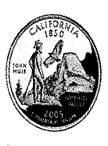题目内容
When Ron Clark began teaching in 1995, his teacher gave him this advice, “If you can 1 the life of one child, you’ll be a success.” Up to now, Ron still doesn’t agree with that advice. When Ron entered a class, he decided to change every student’s life for the better.
Ron never planned on being a teacher. After 2 , he travelled around the world, living a life 3 of adventures(冒险), but after getting terribly sick, he went back to his hometown, North Carolina. Then he got 4 again and taught at a school there. “From then on it was like magic — I fell in love with teaching.” said Ron. After five years of teaching, he heard that some schools in East Harlem, New York were failing because there were 6 good teachers. “At that moment I had a(n) 6— it was like a calling,” he said. “And so I said, ‘I’m going to do it.”
Before school started, Ron went to every single student’s home to 7 with their families. He gave his students his home phone number, so if they had any 8 with their homework, they could call him. To connect with his students, Ron knew he should use special 9 of teaching. He learned to play funny games with them, gave them 10 lessons, and spent his time showing students 11 New York’s tourist attractions. His students studied harder and behaved better in 12 .
Because of his 13 in North Carolina and Harlem, Ron Clark has become one of the most successful teachers in America. And his book called The Essential 55, more than 14 else, has become very popular in the world.
Sold in over 25 15 , The Essential 55 has encouraged teachers around the world to influence the lives of all of their students. Ron Clark is now starting a new school in Atlanta, Georgia — probably his biggest adventure!
Ron never planned on being a teacher. After 2 , he travelled around the world, living a life 3 of adventures(冒险), but after getting terribly sick, he went back to his hometown, North Carolina. Then he got 4 again and taught at a school there. “From then on it was like magic — I fell in love with teaching.” said Ron. After five years of teaching, he heard that some schools in East Harlem, New York were failing because there were 6 good teachers. “At that moment I had a(n) 6— it was like a calling,” he said. “And so I said, ‘I’m going to do it.”
Before school started, Ron went to every single student’s home to 7 with their families. He gave his students his home phone number, so if they had any 8 with their homework, they could call him. To connect with his students, Ron knew he should use special 9 of teaching. He learned to play funny games with them, gave them 10 lessons, and spent his time showing students 11 New York’s tourist attractions. His students studied harder and behaved better in 12 .
Because of his 13 in North Carolina and Harlem, Ron Clark has become one of the most successful teachers in America. And his book called The Essential 55, more than 14 else, has become very popular in the world.
Sold in over 25 15 , The Essential 55 has encouraged teachers around the world to influence the lives of all of their students. Ron Clark is now starting a new school in Atlanta, Georgia — probably his biggest adventure!
| 小题1: |
|
| 小题2: |
|
| 小题3: |
|
| 小题4: |
|
| 小题5: |
|
| 小题6: |
|
| 小题7: |
|
| 小题8: |
|
| 小题9: |
|
| 小题10: |
|
| 小题11: |
|
| 小题12: |
|
| 小题13: |
|
| 小题14: |
|
| 小题15: |
|
小题1:B
小题2:D
小题3:D
小题4:B
小题5:B
小题6:A
小题7:D
小题8:D
小题9:A
小题10:C
小题11:C
小题12:C
小题13:D
小题14:C
小题15:C
试题分析:这篇短文主要记述了美国一名著名的教师——Ron Clark,他对教学充满了热情,因为“老师”这份工作赐给他许多宝贵的机会让他得以改变学生的一生,这就是来自美国北卡罗来纳州的教师Ron Clark。他从自己多年的教学经验中总结出了55个细节,写成了《教育的55个细节》(TheEssential 55),与老师和同学们共勉。
小题1:动词辨析。A. 居住,生活;B. 影响,改变;C. 制作,使得;D. 选择。联系下文,可知此处指的是如果你能影响一个孩子的生活,你就是一个成功者。故选B。
小题2:名词辨析。A. 学校;B. 工作;C. 班级;D. 大学。结合语境可知此处指的是他大学毕业后,故选D。
小题3:结合语境可知此处指的是过着一种充满冒险的生活。Fill后一般搭配介词with,故选D,full of充满……。
小题4:联系上下文描述,可知此处指的是他又恢复健康,故选B,健康的。
小题5:联系前文描述,可知此处表示否定含义,故选B,因为好教师很少。
小题6:名词辨析。A. 感觉;B.思想,想法;C.视野,意见;D. 理智,意见;联系下文描述,可知此处指的是 我有一种感觉,故选A,感觉。
小题7:联系下文with their families.可知此处指的是和他们的家人见面,故选D,会见。
小题8:名词辨析。A.信息,资料;B. 建议,忠告;C.工作,业务;D. 麻烦,烦恼。结合语境可知此处指的是如果他们有任何关于作业的烦恼,故选D。
小题9:名词辨析。A.道路,方法;B. 目标,目的;C.规则,条例;D.目的,目标。结合语境可知此处指的是他应该用特殊的教学方法。故选A。
小题10:形容词辨析。A. 友好的;B.副词,漂亮地;C.生动的;D. 可爱的。结合语境可知此处指的是给他们上生动的课堂,故选C。
小题11:介词辨析。A. 在……对面;B.沿着;C.四处,在……周围;D.在一点。联系下文,可知此处指的是在纽约的旅游景点四周。故选C。
小题12:联系前文描述,可知此处指的是作为回报,他的学生努力学习并且表现的更好。故选C。
小题13:结合语境可知此处指的是由于他的努力,他成为了美国最成功的老师之一。结合语境可知选D。
小题14:词义辨析。A. 任何地方;B. 任何人;C. 任何事;D. 什么也没有。联系前文,可知此处指的是其它任何事,故选C,
小题15:联系下文around the world to influence the lives of all of their students.描述,可知此处指的是在超过25个国家进行销售,故选C,国家。
点评:这篇短文内容比较简单,理解不难。各小题与上下文联系比较紧密,答题中一定要注意联系上下文。答完后多读几遍,看看是否符合逻辑,适当修改。个别小题可以当作单独的词义辨析题来做,先区分词义,结合语境选出最能使语句通顺的答案。

练习册系列答案
相关题目
